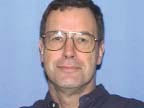 |
| JianghanLu 2010 |
 |
| JianghanLu 1980 |
There are ways around this censorship, including the VPN I’ve been using which (for a fee) provides a server in the U.S. that masks one’s presence in China. But it’s not foolproof; the multiple internet addresses of VPN’s can be stymied, at least for a time.
A week in Wuhan has been a time of heady experiences revisiting and recalling places and experiences from thirty years ago. This morning a young colleague in the English Department met me at the Foreign Language Building to familiarize me with the classrooms I’ll be using. The new Foreign Language Building, about ten years old, is imposing on the outside, especially in contrast to the old FL building I taught in from 1979-1981.
That building still stands, a remnant of the original Wuhan University (Wuhan Daxue, or Wuda), looking shabby and neglected, bushes growing from its green tiles. The current building has central heating and cooling, while the old building had neither. In winter, the classroom was warmed by a single charcoal brazier carried into the classroom to keep the expensive foreign teacher from freezing. Chilblains were common among students. There was a common room used by all the teachers in the English specialty as their office; it happened to be right next to the cesuo, the public toilet, which had no flush capacity: waste just accumulated until someone came with a bucket to remove it.
The classrooms of 1979 had only a blackboard and chalk; today’s have overhead projectors and computers. In 1979 a telephone call was an ordeal for everyone involved, involved a lot of shouting “Wei? Wei?” meaning “Hello?” and hearing only a faint answering shout at the other end. Now cell phones are everywhere and reception is good, though this doesn’t stop people from shouting “Wei?”
A couple of days ago I headed down to Hankou, the largest sector of the three cities that make up Wuhan (total city population: 8 million; 30 years ago: 3 million), to see what the main shopping street, Jianghan Lu, looked like. On the old Jianghan Lu, there wasn’t much to buy or many places to go. The biggest department store, Wang Fu Jing, was a dreary place where you were separated from items for sale by a counter and a grumpy salesperson who hauled things off the shelves behind her and flopped them on the counter.
Even with the poor quality of my 1979 picture of Jianghan Lu (copied from a slide, but looking like something from the early days of photography), you can see a lack of panache in the Jianghan Lu of those days. The new Jianghan Lu is a pedestrian shopping street, close to a Wal-Mart, crowded day and night with well-dressed shoppers. If you look closely, however, you can see that the massive shop hoardings have been hung over the old stone buildings of European colonial days, when Hankou had a foreign concession zone. A block of two away from the shopping area you can look down any alley and see life going on as if unaffected by the changes: old men sit on stools playing checkers; women sweep the sidewalk in front of their small noodle stands, small stores sell cigarettes, soft drinks, fruit, people spend much time lounging and chatting.
The question of which is the apparent and which is the real crops up all the time. One name for it is shanzhai, meaning fake. Fakery is a huge industry in China, which I had an experience of this week when I bought my first cellphone, a Nokia, complete with Nokia box, owner’s manual (in Chinese). I’d barely got it to room before the cover started peeling off like a snake shedding its skin. A Chinese friend took a look at it and commented, “Oh, shanzai.” People stand on streetcorners chanting “Fapiao, fapiao.” They are offering to make fake receipts for people needing, for example, reimbursement for something they didn’t do, or perhaps a doctor’s excuse.
Enough fakery for now. Tomorrow I head out for a few days in Wudangshan, a Taoist retreat in Western Hubei province, before starting classes. So far, anyway, China hasn’t disappointed. There’s enough of the China of 1979-81 to feel at home and enough of the new to be interested in what’s going to happen to this country in the next thirty years.


